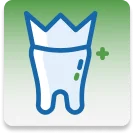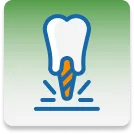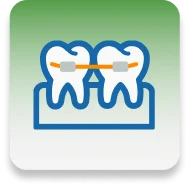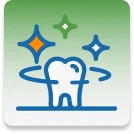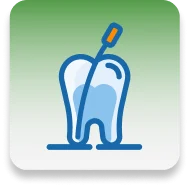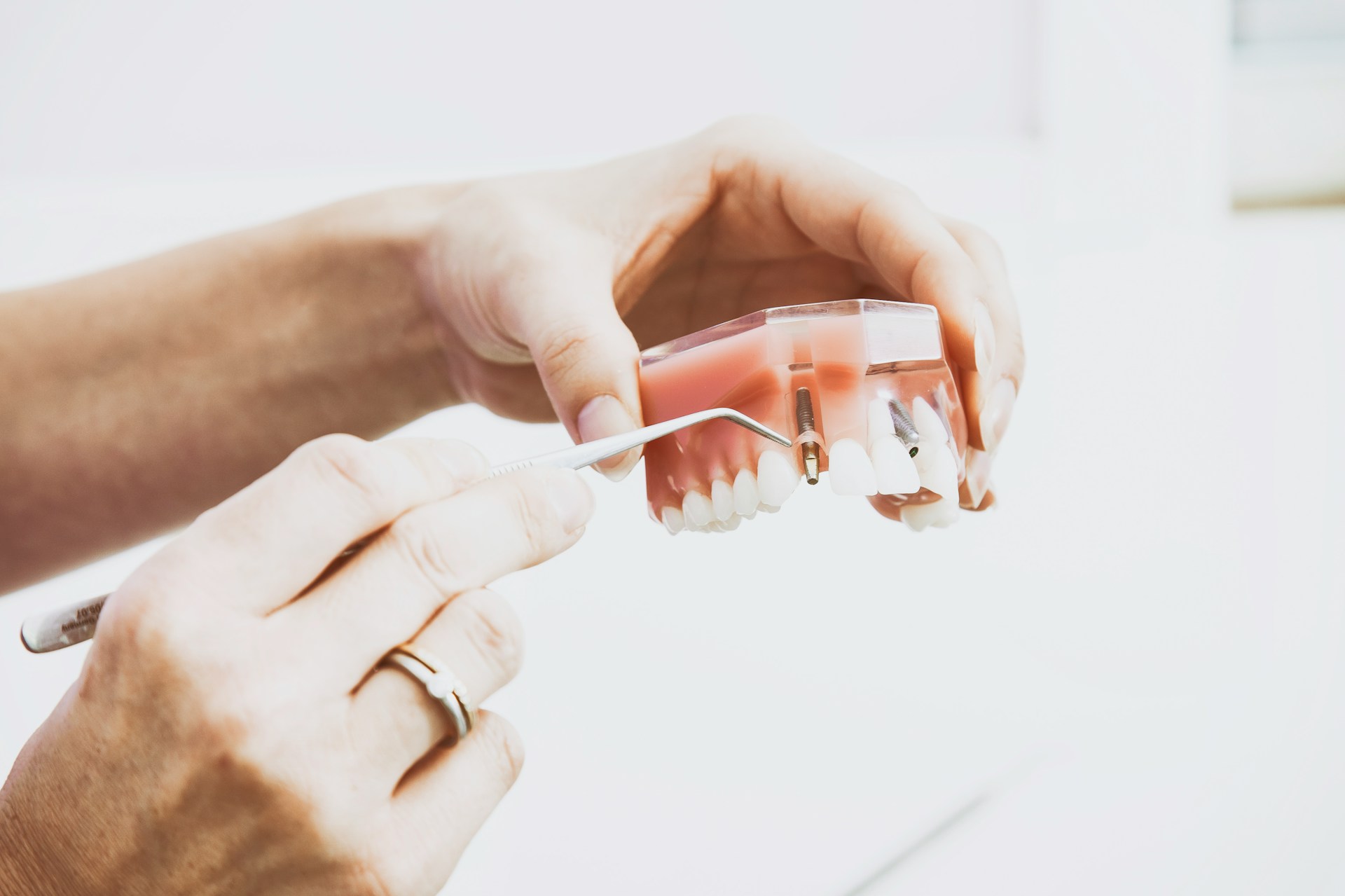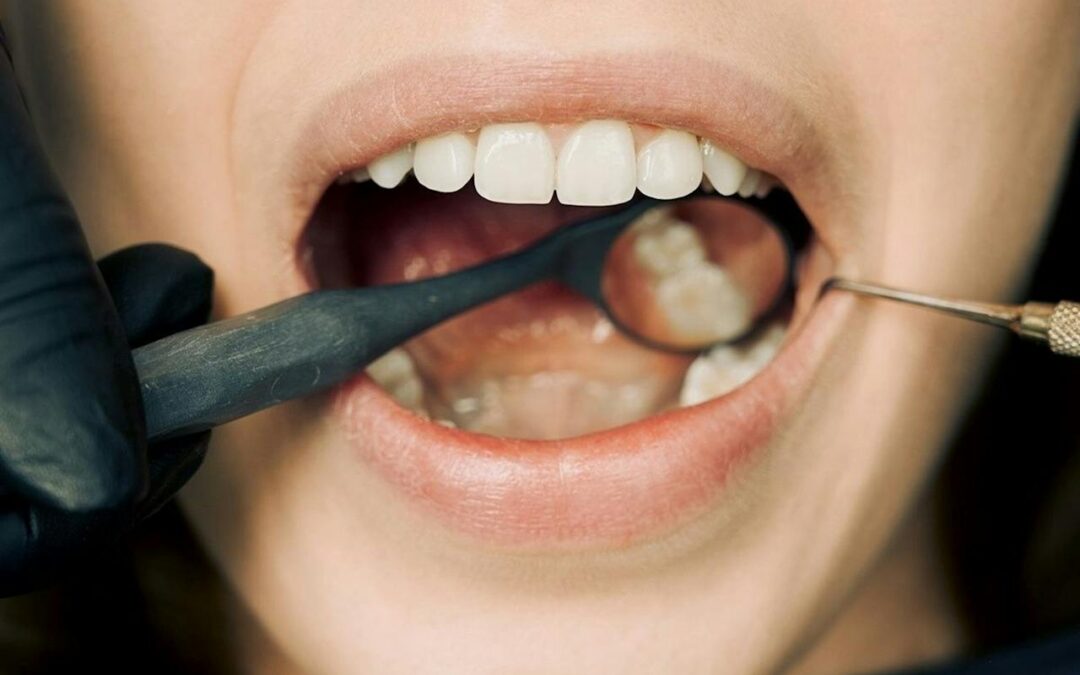Smiling with confidence can make a big difference in your life. If you have missing teeth, dental implants can offer a great solution. They look and feel like natural teeth, giving you back your smile and the function of your teeth. Dental implants are a permanent way to replace missing teeth, and they can improve your life.
Unlike dentures or bridges, dental implants are secured in your jawbone. This means you won’t have to worry about them slipping or coming loose. Dental implants also help keep your jawbone healthy, which is vital for maintaining the shape of your face.
Understanding Dental Implants
What Are Dental Implants?
Dental implants are artificial tooth roots made of titanium. They are surgically placed into your jawbone where your natural roots used to be. Over time, the bone grows around the implant, a process called osseointegration, making it very stable. After the implant fuses with the bone, a dentist will attach a crown (artificial tooth) on top. The crown looks and feels like a real tooth.
This process allows the implant to function just like a natural tooth. With dental implants, you can chew, speak, and smile without worrying about loose teeth. They provide a durable, long-term solution for replacing missing teeth.
Benefits of Dental Implants
Dental implants offer many benefits. First, they can improve your appearance. Implants look and feel like your own teeth, which helps you smile confidently. They can also improve your speech. Unlike dentures, implants won’t slip, letting you speak clearly without fear of your teeth moving.
Another big benefit is that implants help you eat comfortably. They are very strong and allow you to eat your favorite foods without pain or discomfort. Dental implants also help maintain the health of your jawbone. When you lose a tooth, the bone around it can shrink. Implants help keep your jawbone healthy and strong, preventing bone loss.
The Dental Implant Procedure
Step-by-Step Process
The dental implant procedure happens in several steps. First, your dentist will take X-rays and images of your mouth to plan the surgery. Then, the dentist will numb the area and surgically place the titanium (there is also a ceramic option) implant into your jawbone. This part takes about one to two hours.
After the implant is placed, you’ll need to wait for a few months while the bone grows around the implant. This is called osseointegration. It usually takes three to six months. The dentist will attach an abutment once the implant is securely in place. An abutment is a small connector piece that holds the crown. At Jordan M. Job DDS, instead of doing traditional impressions, which can be messy, we place a scan post and digitally scan your mouth to accurately record the proper abutment and crown to attach to it.
Once we determine the proper abutment, the dental lab and Dr. Job work closely to determine the perfect crown for your implant. The crown is then attached to the abutment, giving you a new, natural-looking tooth.
The final step is placing the crown on top of the abutment.
What to Expect During Recovery
Recovery from dental implant surgery is usually straightforward. You might feel some discomfort for a few days after the surgery, which is normal. Your dentist will likely recommend over-the-counter pain relievers to help manage any pain. At our office we also prescribe an antibiotic as well to promote healing of the site.
Keep the area clean by rinsing it with warm salt water. We also give a medicated mouth rinse called Peridex that helps decrease inflammation and improve healing time. Avoid smoking and hard or sticky foods that could harm the implant. Follow your dentist’s advice for a smooth recovery. Most people can return to normal activities the day after the surgery, but strenuous activities should be avoided for a few days.
It’s also essential to attend all follow-up appointments. These visits allow your dentist to check the healing process and ensure everything is going well. Dr. Job also loves to follow up with you following surgery to ensure that you are taken care of with any questions or concerns you may have. Proper care during recovery ensures the implant fuses correctly with the bone and prepares you for the placement of the permanent crown.
Comparing Dental Implants to Other Options
Implants vs. Dentures
Dental implants and dentures are both solutions for missing teeth, but they have key differences. Implants are permanently fixed in your jawbone, allowing them to mimic natural teeth closely. This means you won’t worry about them slipping out while eating or speaking.
Dentures, on the other hand, are removable appliances that sit on top of your gums. They can be less stable and sometimes uncomfortable. You might need to use adhesives to keep them in place. While dentures are less expensive upfront, they often require adjustments and replacements over time.
Implants can help preserve the jawbone, while dentures may contribute to bone loss over time since they don’t provide stimulation to the jawbone. If you’re looking for a more permanent and natural-feeling solution, implants might be the better choice for you.
At Jordan Job DDS, another option we offer our patients is an implant-supported denture, which helps keep the denture more secure when you talk or chew. This has been a wonderful solution for patients.
Implants vs. Bridges
When choosing between dental implants and bridges, there are a few things to consider. A dental bridge uses the teeth next to the gap or area where the tooth is missing as anchors, which may involve grinding down healthy teeth. Dental implants do not require altering neighboring teeth, making them a more tooth-friendly option.
Bridges might be less expensive initially, but they usually need to be replaced every 5-15 years. A disadvantage of a bridge is if one or both of the teeth become decayed or breakdown, then the bridge can potentially fail and can cause further complications down the road. Implants, with proper care, can last a lifetime. Another advantage of implants is their ability to prevent bone loss, something bridges cannot do.
While bridges can be quicker to install, the long-term benefits of dental implants may outweigh this convenience. If preserving the health of your mouth and jawbone is important to you, an implant may be worth considering. With a bridge, you may have to wait 8 weeks for proper healing if the tooth needs to be extracted on the same day as the bridge preparation. We wait this long because we want the final prosthesis to rest comfortably on the gums to prevent food from being trapped under your bridge. At Jordan Job DDS, we encourage people to choose implants because they are easier to maintain than traditional bridges.
Caring for Your Dental Implants
Daily Care Tips
Taking care of your dental implants is similar to caring for natural teeth. Brush your teeth at least twice a day with a soft-bristle toothbrush. Be gentle around the implant area. Use a low-abrasive toothpaste to avoid damaging the implant surface.
Floss daily to remove food particles and plaque between your teeth and around the implants. There are special types of floss, like implant-specific floss or interdental brushes, which can help you clean more effectively. Regular rinsing with an antibacterial mouthwash can also keep your mouth healthy. We also recommend a water flosser in some instances to help remove any buildup that can occur around your teeth or implant to help preserve your teeth for the longer term.
Avoid hard and sticky foods that can damage your implants. Chewing ice or using your teeth to open packages can also harm them. With daily care, your implants will remain in great condition.
Long-Term Maintenance
Long-term maintenance is key to ensuring the longevity of your dental implants. Regular dental visits are crucial. Your dentist will check on the health of your implants, clean hard-to-reach areas, and make sure your gums are healthy.
Maintain a balanced diet and avoid smoking, as it can negatively affect the health of your gums and implants and, worst case scenario, can cause the dental implant to fail and have to start the process over again. Drink plenty of water to keep your mouth hydrated and help wash away food particles.
If you notice any issues like discomfort, swelling, or a loose implant, contact your dentist immediately. Addressing problems early can save you from more complicated procedures later. Consistent, proper care will keep your dental implants functioning well for years to come.
Conclusion
Dental implants are a transformative option for those looking to restore their smile. They offer a natural look and feel, making them a popular choice over other solutions like dentures and bridges. Understanding the process and benefits helps you make an informed decision about your dental health.
Proper care and maintenance of your implants are crucial for long-term success. Following daily care tips and scheduling regular dental visits ensure your implants stay in excellent shape. By providing stability and function, they not only enhance your appearance but also improve your overall quality of life.
Considering dental implants? Dr. Jordan M. Job DDS, a leading Parma dentist, and our dedicated team are here to guide you through every step. Schedule an appointment today to discover how dental implants can transform your smile and restore confidence.

